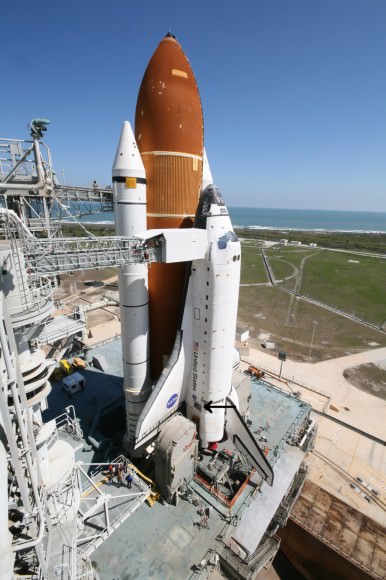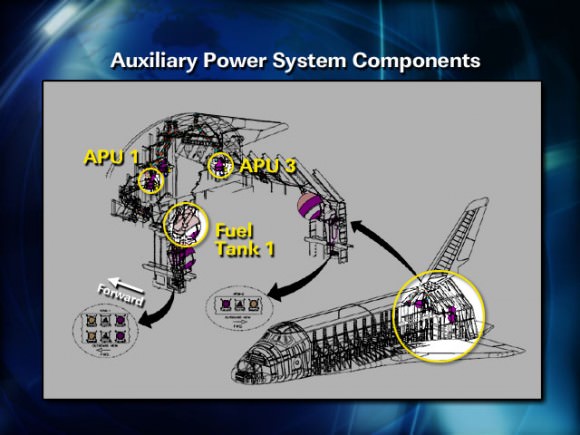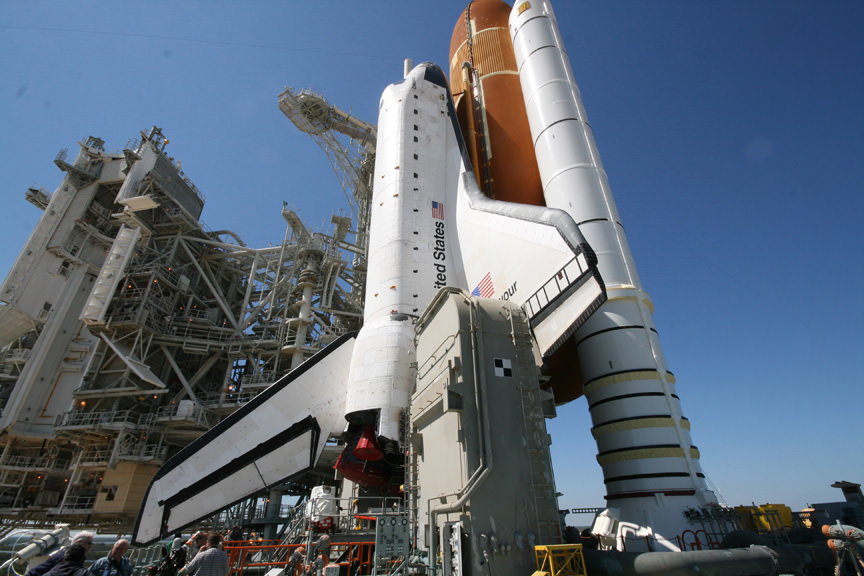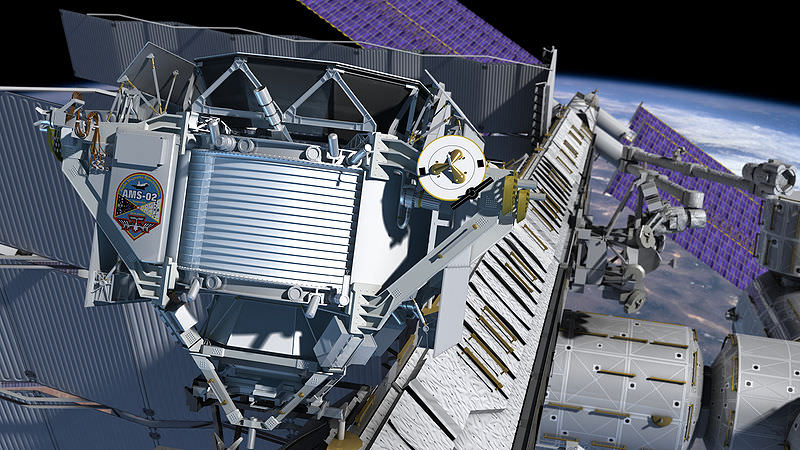[/caption]
KENNEDY SPACE CENTER – The final launch of shuttle Endeavour will be further delayed, perhaps by a week or more – to May 6 or 11 time frame – as technicians working at the pad seek to determine the cause of the failure of multiple heaters in auxiliary power unit-1 (APU) which caused the scrub of Endeavour’s launch attempt on Friday, with just 4 hours remaining in the countdown. The six man crew of Endeavour had just departed for the launch pad inside the Astrovan and was forced to turn around soon thereafter. We saw them pass us by, heading back to crew quarters to await a resolution of the issues.
The launch delay came as a huge disappointment to NASA and the enormous crowd estimated at 750.000 people who came to Florida to watch the momentous liftoff in person for what many call a “life changing experience”. Even President Obama and the entire first family were on hand to witness Endeavour’s launch. But the top priority is to launch the shuttle safely and the launch team emphasized that they made absolutely no changes to the countdown procedures.

APU-1 is located on the left side of the orbiter in the aft section behind the end of the payload bay.
The heaters play a critical role in keeping the APU hydrazine fuel from freezing in orbit and remain in a fluid state. If the hydrazine were to freeze and then thaw back to a liquid, it would expand and potentially rupture the fuel lines with devastating consequences.

The orbiter has three APU’s. Only one is required to fly safely. Three units provide redundancy and all must be in working order before launch. Otherwise the launch commit criteria would be violated, forcing a launch scrub. The APUs provide the hydraulics to maneuver the main engine nozzles, elevons, rudder, body flap, landing gear brakes and nose wheel steering system.
Technical teams got to work inside the orbiter on Saturday after the rotating service structure was rolled back around the orbiter to enable access. If the problem is deeper within the orbiter at the Load Control Assembly it will take several additional days to fix the problem. Retesting of any new components inside the LCA will take at least 48 hours. Furthermore if any ordnance needs to be disconnected, a further delay of multiple additional days is inevitable.
In order to launch Endeavour on Monday, May 2, at 2:34 p.m. EDT, NASA must resume the countdown on Sunday afternoon. NASA only has until May 4 to get Endeavour off the ground until they would be forced to stand down to make way for the May 6 blastoff of an Atlas V rocket carrying an Air Force early-warning missile detection satellite.
NASA officials are in touch with Air Force officials to determine if the Air Force could be flexible in changing their launch date in the event that Endeavour would be ready to launch on the blackout dates of May 5 to 7.
NASA will hold a news briefing at 2 p.m. on Sunday to update reporters on the situation.
Read my related stories about the STS-134 mission here:
On the Cusp of Endeavour’s Final Flight
Brush Fires Erupt at Kennedy Space Center during Endeavour’s Last Countdown
Commander Mark Kelly and STS-134 Crew Arrive at Kennedy for Endeavour’s Final Flight
President Obama to Attend Endeavour’s Last Launch on April 29
Shuttle Endeavour Photo Special: On Top of Pad 39A for Final Flight
Endeavour Mated to Rockets for Last Flight Photo Album
Endeavour Rolls to Vehicle Assembly Building for Final Flight


